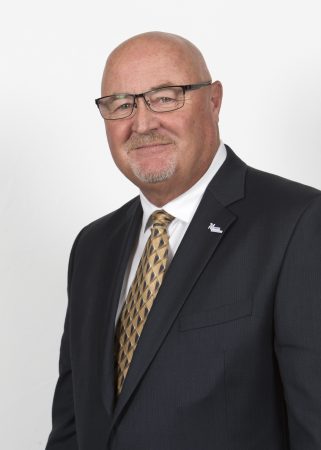
Features
CANASA executive director offers advice on how security businesses can cope with COVID-19
March 20, 2020 By Neil Sutton

SP&T News recently reached out to the Canadian Security Association’s executive director Patrick Straw for some guidance on how security businesses can best serve their staff, customers and partners during the challenging and unprecedented times presented by the COVID-19 pandemic. Straw responded to questions via email.
SP&T News: What are your recommendations for alarm/security equipment installers who may be called for site visits?
Patrick Straw: We are asking our member companies, if and when they contact us, to comply with the Health and Safety practices as published by the local, provincial and federal governments on social distancing. Screening would have to be done prior to a service call being dispatched and a lot of discretion would have to be used as to the importance or necessity for a service call. Most larger companies have already addressed formal policies but often the small companies are looking for a bit of guidance. Really all we can be is a “forwarding” agency passing on information as we receive it from legitimate sources.
SP&T: What should security business owners be doing to ensure their staff are safe?

Patrick Straw, CANASA
PS: I have been on many conference calls with security companies across the country including several monitoring stations. The monitoring stations have been working very hard to restructure their operations so that there is a minimal amount of social interaction in person and a ton of work is being done with cleaning practices, as would be expected. There have also been visitor restrictions placed on many businesses. Just like all other industries, employees who can work from home are doing so. That is the case with our own staff at the CANASA office.
SP&T: What can owners do to ensure their businesses are able to keep operating?
PS: Individual companies are going to have to make their own determination as to what the risks are continuing to do business. Very challenging time and the government is tightening up the rules on a daily basis in an effort to slow the spread of the virus. Many businesses are going to take a hit and hopefully the promises from the government on all levels for support will be available to these companies.
SP&T: Have companies expressed concern about HR or staffing issues?
PS: Most of this is about staffing. There have already been many lay-offs and more will continue. Some functions will simply have to go on hold till this crisis is over. I have received several press releases from a wide range of large companies from telecoms to grocery chains explaining what they are doing to ensure the safety of their staff and to give direction on the courtesies that we all need to extend.
SP&T: What is the status regarding the security product supply chain? Can dealers/installers still expect to be able to order the equipment and parts they need?
PS: So far I have not heard any major issues on the supply chain. Trucks are still rolling and to the best of my knowledge the distributors are still operating. The change will happen when they are restricted access into buildings to finish an installation or the construction is delayed causing the same problem. I also wonder if some integrators are stockpiling product worried that there will be a limitation on stock down the road.
SP&T: In what cases can security professionals expect to be deemed an essential service?
PS: The essential service question is an important one. We have sent letters to both provincial and federal governments requesting that this be the case especially if the situation worsens. Public safety is a big concern for our members monitoring for fire, intrusion, medical and personal emergencies and many other critical areas.
SP&T: What are the lessons the security industry can take away from COVID-19 to improve services in case of a future public emergency?
PS: Already much information has been shared by groups such as ULC/UL who have lived through many of the natural disasters which have happened in the United States. Whether via weather or earthquakes or flooding, many things changed as a result of these experiences. One of the most incredibly positive aspects to this situation is the co-operation between CANASA member companies who are really competitors. I just got off a call with our national Monitoring Station Committee and they are on a day by day basis sharing learned experiences and best practices to help each other out. And the larger stations with more resources are offering assistance to the smaller businesses as required. I am very proud of this group.
At the end of the day, we are all going through a situation which is unprecedented in Canada. We have to work together, support each other at work and at home and conform very strictly to the Health Ministry practices to keep the pandemic from spreading. We will get through this as an industry and a country.
Print this page
Advertisement
- 2GIG co-founder Scott Simon passes away
- Options for monitoring stations faced with work-from-home scenarios